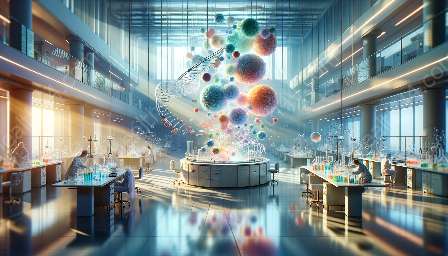As we delve into the intricate realm of biochemistry and health education, it's essential to understand the fundamental building blocks of life - biomolecules. From proteins and carbohydrates to nucleic acids and lipids, these molecules play a vital role in every aspect of life and are crucial to our understanding of the human body.
The Importance of Biomolecules in Biochemistry
Biomolecules form the foundation of biochemistry, the science that explores the chemical processes within and related to living organisms. Through the study of biomolecules, biochemists unravel the mechanisms behind various physiological and pathological processes, paving the way for advancements in medical research and treatment.
Proteins: The Workhorses of Biomolecules
Proteins are one of the most diverse and essential biomolecules, comprising enzymes, hormones, and structural components of cells. These complex molecules are vital in catalyzing biochemical reactions, transmitting signals, and providing structural support throughout the body.
Carbohydrates: Fuel for the Body
Carbohydrates serve as the primary source of energy for the human body. They also play a crucial role in cell recognition, adhesion, and signaling, making them indispensable for various physiological processes.
Biomolecules in Health Education and Medical Training
Understanding biomolecules is integral to health education and medical training. By comprehending how these molecules function within the body, healthcare professionals can diagnose, treat, and prevent a myriad of diseases and disorders.
Nucleic Acids: Unlocking the Genetic Code
Nucleic acids, such as DNA and RNA, store and transmit genetic information. Medical professionals rely on their understanding of nucleic acids to diagnose genetic disorders, develop personalized treatments, and advance the field of genomics.
Lipids: Beyond Energy Storage
Lipids play a multifaceted role in the body, serving as energy stores, cell membrane components, and signaling molecules. Their impact on human health is vast, influencing conditions such as cardiovascular disease, obesity, and metabolic disorders.
Conclusion
Biomolecules form the cornerstone of biochemistry, health education, and medical training. Their intricate functions and diverse roles within the human body illustrate the complexity and marvel of life at the molecular level. By grasping the significance of biomolecules, we open doors to a deeper understanding of biochemistry, health, and medicine.


